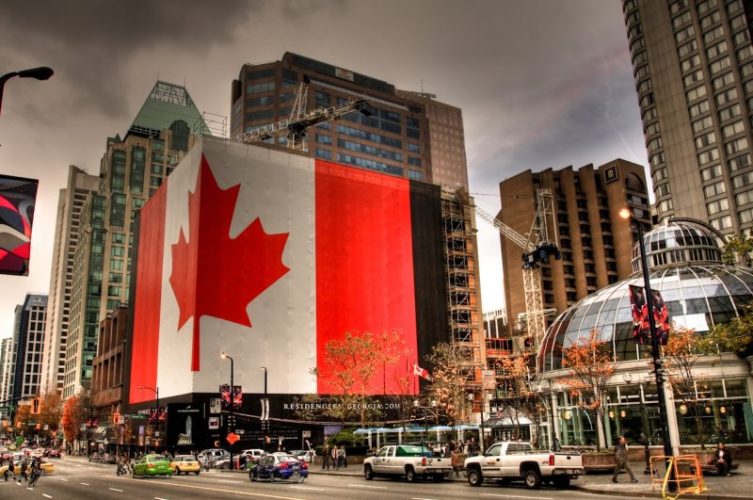Did Canada signal the beginning of global recession?

During the second quarter of 2016, Canada’s GDP contracted at a 1.6 percent annualized rate. That was the worst number in seven years, and it was even worse than most analysts were projecting. This comes at a time when bad news is pouring in from all corners of the global economy.
While things in the United States are still relatively stable for the moment, the same cannot be said for much of the rest of the planet. Canada in particular has been hit very hard by the collapse in oil prices, and the massive wildfire in northern Alberta back in May certainly did not help things. The following comes from the BBC…
The recent drop in GDP was larger than analysts had projected, but not far off the predicted 1.5% loss.
“[The figure] could have been worse, given the hit from the wildfire, and clearly confirms the disappointing downward trend in exports over the last few months,” said Sal Guatieri, senior economist at BMO Capital Markets.
In May, wildfires devastated the parts of northern Alberta where much of Canada’s oil and natural gas is produced.
For many years, high oil prices and booming exports enabled the Canadian economy to significantly outperform the U.S. economy. But now conditions have changed dramatically, and all of the economic bubbles up in Canada are starting to burst. This includes the housing bubble, as we have seen home sales in the hottest markets such as Vancouver drop through the floor late in the summer. In fact, it is being reported that home sales during the first two weeks of August in British Columbia were down a whopping 51 percent on a year over year basis.
Do you remember the housing bubble in the U.S. that helped fuel the last financial crisis? Well, a very similar bubble is now bursting up in Canada, and some investors have positioned themselves to make a tremendous amount of money when the whole thing comes violently crashing down. The following comes from Wolf Richter…
This summer, famed short seller Marc Cohodes came out of retirement (he now raises chickens on a farm in Sonoma County, CA, and sells the eggs for a fortune in San Francisco) and jumped into ring with a number of interviews on TV and in the print media, and this too rattled some nerves – largely because it hit home.
“I think it’s a money laundering-induced market,” he said as we reported at the time. “Where the local politicians, or the BC Liberals, are kept or in cahoots with the real estate brokers, developers, lawyers, that angle. And they have sought Chinese money to keep the market propped up and it won’t last,” he said. “China has capital controls on, and Vancouver has become the money laundering mecca of either the world or North America, and something is going to change and change drastically.”
If the price of oil does not rebound in a major way, the Canadian economy is going to continue to deeply struggle.
Meanwhile, one of the biggest economies in Africa is also shrinking. Nigeria is yet another oil-dependent economy that has fallen on really hard times, and during the latest quarter their GDP shrunk by 2.06 percent on an annualized basis…
Nigeria has slipped into recession, with the latest growth figures showing the economy contracted 2.06% between April and June.
The country has now seen two consecutive quarters of declining growth, the usual definition of recession.
Its vital oil industry has been hit by weaker global prices, according to the Nigerian Bureau of Statistics.
There are so many signs that indicate that the global economy has entered a new major downturn. Yes, the U.S. is doing better than almost everyone else for the moment, but this will not last indefinitely. Our planet is more interconnected than ever before, and just as we saw in 2008, big trouble on one side of the globe quickly affects the other side.
Today we also learned that the 7th largest container shipping company in the entire world has completely imploded. Total global trade has been declining for quite some time now, and it was inevitable that this sort of thing would start happening…
After years of relentless decline in the Baltic Dry index…
… today the largest casualty finally emerged on Wednesday when South Korea’s Hanjin Shipping, the country’s largest shipping firm and the world’s seventh-biggest container carrier, filed for court receivership after losing the support of its banks, leaving its assets frozen as ports from China to Spain denied access to its vessels.
Over in Europe, an emerging banking crisis continues to simmer just under the surface.
Most Americans are completely oblivious to the fact that major global financial problems could be just around the corner, but CNBC is reporting that banks over in Europe are “preparing for an economic nuclear winter situation”…
European banks, in particular, have had a very tough six months as the shock and volatility around Brexit sent banking stocks south. Major European banks like Deutsche Bank and Credit Suisse saw their shares in free-fall after the referendum’s results were announced. In the U.K., RBS was the worst-hit, with its shares plunging by more than 30 percent since June 24.
The current uncertainty over when the U.K. will start the process of quitting the EU has banks on tenterhooks. But a source told CNBC that banks are “preparing for an economic nuclear winter situation.”
Speaking on the condition of anonymity due to the sensitive nature of the topic, a source from a major investment bank told CNBC that financial services firms have put together a strategy in place that takes into account the worst-case scenario that could happen by the end of this year.
So precisely what would an “economic nuclear winter” look like?
I don’t know, but it certainly does not sound good.
We should be thankful that things have been as calm and stable as they have been so far in 2016, but nobody should be fooled into thinking that our problems have been fixed.
The truth is that the global debt bubble is at an all-time high, the banks are being more reckless and are more vulnerable than ever before, and troubling economic numbers continue to pour in from all over the planet.
The stage is certainly set for the next major global economic crisis, and it isn’t going to take much to push the world over the edge.

